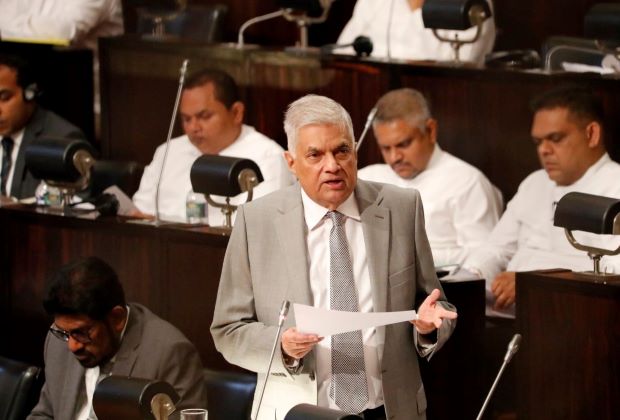Constitutional error could give Ranil and Parliament another year
COLOMBO – Sri Lanka’s Constitution could allow President Ranil Wickremesinghe to extend his tenure by almost a year due to a mistake that has been overlooked since the 19th Amendment in April 2015.
The sweeping 19th Amendment sought to establish democratic reforms, ensure good governance, and shorten the terms of both the President and Parliament to five years. However, it neglected to ensure consistency regarding tenure.
While all references to the six-year terms of both the President and Parliament were changed to five years in line with the 19th Amendment, Article 83(b) was overlooked and left unchanged, giving President Wickremesinghe a loophole to extend his term.
Any bill to extend the five-year term of the President or Parliament requires approval in Parliament with a two-thirds majority, followed by endorsement at a referendum.
However, under Article 83(b), such a referendum is required only if the bill extends the term to over six (6) years, not five (5) years as it should have been.
This means that, technically, Wickremesinghe could extend his own term and that of Parliament by 11 months and 29 days without breaching the Constitution.
Political analysts note that this must also be read in conjunction with feelers put out by the United National Party (UNP) General Secretary Range Bandara that Wickremesinghe should be given more time at the helm and the country was not ready to hold a presidential election later this year.
Here is Article 83:
(83). Notwithstanding anything to the contrary in the provisions of Article 82 –
(a) A Bill for the amendment or for the repeal and replacement of or which is inconsistent with any of the provisions of Articles 1, 2, 3, 6, 7, 8, 9, 10, and 11 or of this Article; and
(b) A Bill for the amendment or for the repeal and replacement of or which is inconsistent with the provisions of paragraph (2) of Article 30 or of paragraph (2) of Article 62 which would extend the term of office of the President, or the duration of Parliament, as the case may be, to over six years, shall become law if the number of votes cast in favour thereof amounts to not less than two-thirds of the whole number of Members (including those not present), is approved by the People at a Referendum, and a certificate is endorsed thereon by the President in accordance with Article 80.
This is Article 30 in full:
30. (1) There shall be a President of the Republic of Sri Lanka, who is the Head of the State, the Head of the Executive and of the Government, and the Commander-in-Chief of the Armed Forces. (2) The President of the Republic shall be elected by the People and shall hold office for a term of five years.
This is Article 62 in full:
62. (1) There shall be a Parliament which shall consist of two hundred and twenty-five Members elected in accordance with the provisions of the Constitution.
(2) Unless Parliament is sooner dissolved, every Parliament shall continue for five years from the date appointed for its first meeting and no longer, and the expiry of the said period of five years shall operate as a dissolution of Parliament.
-economynext.com



Comments are closed, but trackbacks and pingbacks are open.